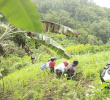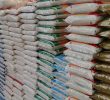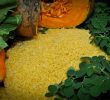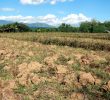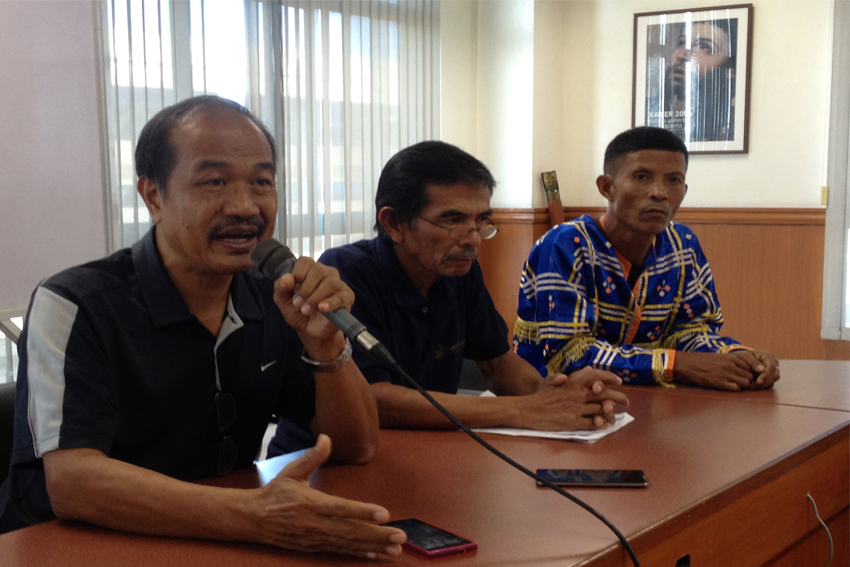
Dr. Chito Medina (left), national coordinator of MASIPAG explains how they teach farmers in producing food that are resilient to climate change. He is joined by Carlito Seguiro, a farmer from the Visayas and Datu Isidro Indao from Kitaotao, Bukidnon province. (Evan Michael S. Clerigo/davaotoday.com)
By Lyka Amethyst Casamayor & Evan Michael Clerigo, Davao Today Interns
DAVAO CITY— Following the onslaught of El Niño, farmers from Luzon, Visayas, and Mindanao unite to combat La Niña.
Datu Isidro Indao, an indigenous farmer from Kitaotao, town, Bukidnon said communal farming has always been part of their traditional way of sustaining food production. Aside from communal work, the Magsasaka at Siyentipiko para sa Pag-unlad ng Agrikultura, a network of farmers, scientists and non-government organizations to which he is a member, also encourages the practice of farmer-saved seeds, indigenous knowledge, and education.
MASIPAG said that these agroecological practices are proven to be “practical, low cost, and sustainable in ensuring food during climate change.”
Food shortages from El Niño
The group said that an estimate of P5.32 billion-worth of damages caused by El Niño from the last quarter of 2015 up until May of this year hit thousands of farmers and families resulting to hunger and food shortages.
Datu Isidro cried foul over government’s negligence on the issue of food shortage.
“Kaduha na mi naghimo og resolution apan walay tubag sa gobyerno. Tungod kay walay tubag sa gobyerno, gidad-an namo sa 3,000 ka mga tao nag-adto nag-atubang sa Sanguniang Bayan nga kaming mga mag-uuma mangayo mi og bugas (We have already made a resolution, twice, but the government still did not respond. Because of this, 3,000 farmers protested in front of the Sanguiang Bayan and demanded for rice),” Datu Isidro said.
Meanwhile, national coordinator of MASIPAG Dr. Chito Medina explained that they have collected 2,000 different kinds of varieties, and have discovered more than 70 kinds of rice that can withstand floods, drought or El Niño, pests, or even saltwater.
Medina said they aim for farmers’ empowerment which involves teaching farmers to aid their own farm problems and to use organic fertilizers to secure food that are resilient to climate change.
“Tinuruan naming sila sa rudiments of science na mag-observe, mag-generalize, o kaya mag-establish ng cause-and-effect relationship para siya na mismo maglutas ng problema niya (We taught them in the rudiments of science to observe, to generalize, or to establish a cause-and-effect relationship so they could solve their problems),” Medina added.
Medina said that “farmers need to veer away from chemical and capital-intensive agriculture.”
Alternatives over chemical and mono-cropping agriculture
According to Anita Morales, executive director of METSA, the agriculture in the Philippines is dominated by chemical agriculture and mono-cropping. Morales said that these limit farmers to produce sustainable and safe food.
METSA Foundation is an NGO based in Davao City that has been working with female farmers involved in sustainable agriculture in rural areas. The groups also encouraged farmers “to plant other alternatives so that they may have other food sources in the event of typhoon or flooding.” (davaotoday.com)


